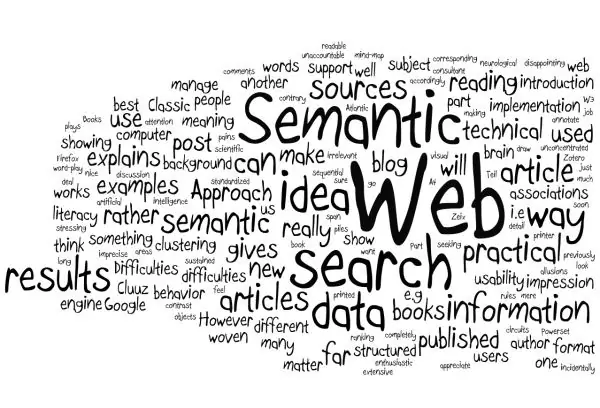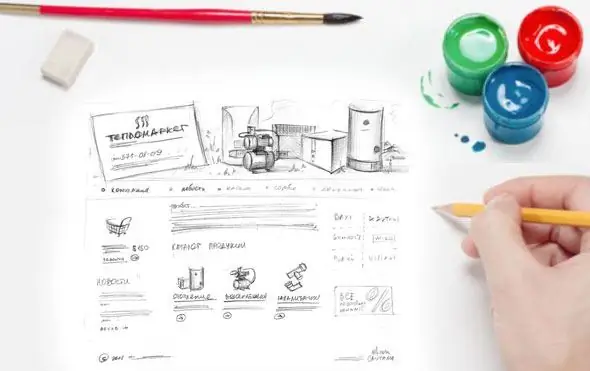- Author Lauren Nevill nevill@internetdaybook.com.
- Public 2023-12-16 18:48.
- Last modified 2025-01-23 15:15.
It's not enough just to create a website. Its further promotion and visibility in search engines is much more important and depends entirely on quality content. Effective can be called the content on the site, which equally appeals to both readers and search engines.

In this article, I will outline 10 main principles that will help you create quality content and make your website truly successful.
Search engines identify your site's content using keywords. They are usually very closely related to the search terms that users enter into search engines. Before writing on any topic for websites or blogs, you will need to do thorough research on keywords that are closely related to the topic you want. You can use a keyword as a tool for suggesting additional keywords in Google AdWords or YandexWordstat.
Please remember that you are primarily writing for your readers, not for the search engines. It may be difficult for you to use some of the popular keywords in a readable way, but you cannot afford to make text that contains only keywords. Although search engines search for keywords, they would like to ensure that readers receive quality content. As such, you will need to make sure the content is interesting and adds value to your readers.
Make sure you use keywords while keeping your content relevant. Search engines use a number of techniques in order to be able to locate content that has been created with the sole purpose of getting good rankings. Not only will such content become unreadable, but chances are your site will end up blacklisted by search engines.
Overusing keywords is a bad idea because your readers will know your intentions right away. Instead of using keywords throughout the text, you could use them in more meaningful places. In other parts of your article, you can use alternative synonyms or phrases rather than keywords.
People hate reading large walls of texts. Plus, different sized chunks of text will make your article boring. By not reading your entire post or article, you will be wasting your time and effort. The content will become clearer if the paragraph sizes are limited to 4 to 5 lines.
Most of your readers probably don't have a lot of time and are not interested in reading the entire content of your article. They will likely prefer to skim through all bullet points if they are clear and concise. Thus, it would be nice to use bullets or numbering whenever possible.
Subheadings can be very helpful in guiding the reader and pointing out the key points they are interested in. In addition, you can use keywords as subheadings so that the reading stream is not interrupted.
If you have hyperlinks to any of your other pages, make sure you can explain the relevance of that link. If the page you are linking to is irrelevant to what you say in the content, this is very annoying to readers. You can lose your credibility with your readers, and this is something that is really difficult to recover.
Some authors feel that they must repeat or paraphrase the same information in order to get their message across to readers. Readers are smart enough to understand the information the first time. Repetition can annoy them. It is always best to keep delivering information rather than repeating the same things.
Unless you have very good typing skills, you can make spelling mistakes. Make sure you proofread your articles or posts very carefully before you publish them. It would be nice to correct twice to eliminate all errors.
In addition to all of the above, you need to make your content interesting to your readers. You can interest them more if you write on a topic in which you have practical experience.






